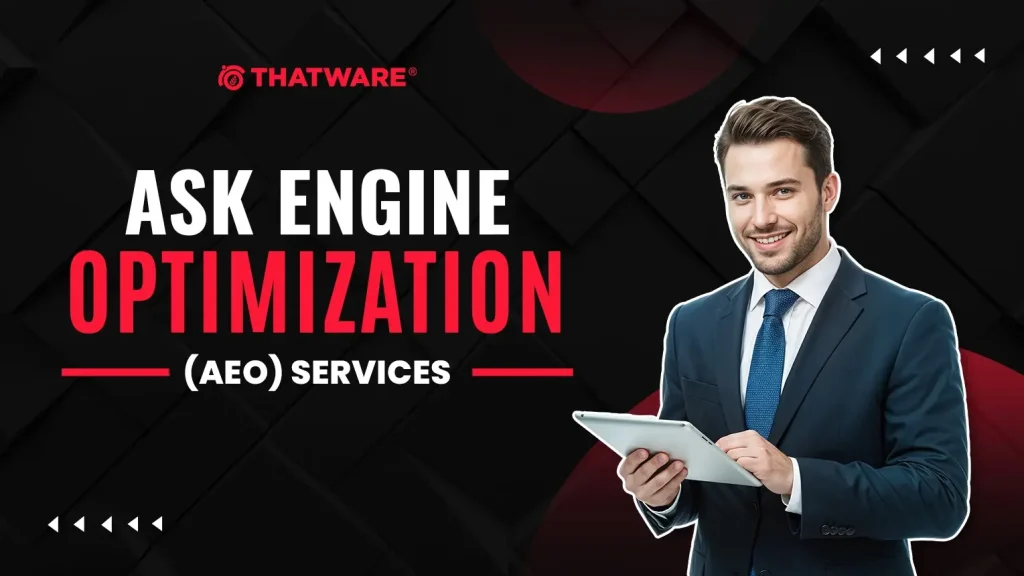In the fast-evolving world of search engine optimization, we’re standing on the brink of a revolution—one that goes far beyond blue links and basic rankings. It's called AEO for SearchGPT, and it’s not just another SEO trend. It's the future.
Let’s break it down in a way that feels like a conversation, not a lecture. AEO stands for Answer Engine Optimization. As search shifts from keyword-matching to intent-driven results, optimizing for answers rather than just queries is becoming more crucial than ever. SearchGPT—an AI-driven system—feeds off these clear, structured, intent-rich responses. That’s where AEO steps in.
Instead of stuffing pages with keywords and hoping for rankings, smart businesses are focusing on delivering answers that align with how users actually search—through questions, natural phrases, and voice. This change is shaping how AI interprets content, especially with tools like SearchGPT acting as intelligent filters. When you optimize for AEO for SearchGPT, you’re not just speaking to a robot; you’re speaking through one to reach real humans.
Now, why does this matter?
Search engines—and AI systems like SearchGPT—now value clarity, relevance, and directness. They don’t want fluff. They want structured, schema-based data that provides meaningful answers. Think FAQs, featured snippets, and conversational-style content. And AEO provides the framework to do just that.
Halfway through this shift, businesses are realizing something else too: technical SEO alone isn’t enough anymore. Enter Advanced SEO Services. These services include everything from in-depth content audits to semantic markup and voice search optimization—each designed to work hand-in-hand with AEO principles. If your site isn't providing structured data, concise answers, and conversational content, you’re likely to be filtered out by systems like SearchGPT.
This is where AEO really begins to shine. It’s not just about targeting high-volume keywords. It’s about context. It's about user intent. When users ask, “What is the best digital marketing agency near me?” or “How can I rank better with AI tools?”—SearchGPT needs to understand your content well enough to trust it as a source. AEO ensures it does.
By focusing on AEO for SearchGPT, you’re aligning your site with how search is actually evolving. It's not just about being seen. It's about being chosen.
Now, let’s talk about what you can do right now.
-
Implement Structured Data: Use schema markup for FAQs, articles, and product pages. It helps AI models digest your content better.
-
Create People-First Content: Write in a conversational tone, anticipate questions, and answer them clearly.
-
Optimize for Voice and Mobile: Many searches via SearchGPT are voice-based. Content should be short, simple, and direct.
-
Use Visual Aids Wisely: Charts, tables, and visuals break complex answers into digestible formats.
-
Audit with an AEO Lens: Not just what your content says, but how it says it. Are you answering real user questions?
What sets ThatWare apart is our commitment to these emerging frontiers. We don’t just follow SEO trends—we lead them. Our approach to AEO for SearchGPT blends data-driven insights with a deep understanding of how AI parses and prioritizes content. Whether you're optimizing for Google's traditional algorithm or preparing for future AI-driven searches, our strategies place your brand at the forefront.
The digital landscape is changing fast. Don't wait until you're left behind. At ThatWare, we specialize in Advanced SEO Services tailored for businesses ready to adapt to intelligent search. Whether you're a startup or an enterprise, we help you build content ecosystems that AI trusts and users love.
In conclusion, AEO for SearchGPT isn’t just a new buzzword—it’s a wake-up call. As AI tools reshape how people search, only those with smart, structured, answer-driven content will thrive. Let ThatWare guide you into this new era of search visibility.
It’s not about keeping up anymore—it’s about leading the way.




.png)


0 Comments